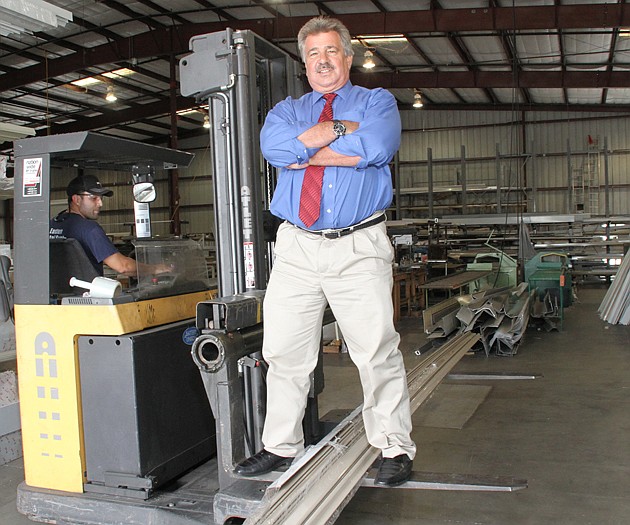- November 24, 2024
-
-
Loading

Loading

Imagine you're in the hurricane-protection business, but there are no major hurricanes for seven years. On top of that, no one's building new homes in a recession.
When you consider those factors, it's a wonder Brian Rist's company is still in business at all. But Smart Companies is growing because Rist responded quickly to changing conditions.
“You have to be willing to reinvent yourself all the time,” says Rist, 59, the company's owner and chief executive.
Over nearly two decades in business, Rist has installed hurricane protection systems such as shutters and screens in the homes of more than 55,000 customers around Southwest Florida. Until the residential collapse, most of Rist's business was installing such systems in new homes.
So in 2007, when homebuilders halted operations in Florida, Rist started traveling in search of new business. He found it in Mexico, where his company installed hurricane protection systems at the Hotel Presidente in Cancun.
“One hotel led to another hotel,” Rist says. Plus, there was no competition. “We were the only ones down there,” he smiles. “We built a manufacturing facility in Mexico.”
 The hotel business carried Smart Companies through the Southwest Florida downturn and allowed Rist the opportunity to broaden the scope of his services such as installing windows, lighting systems and solar-energy devices. “If you keep fishing in the same pond and don't catch fish, you go to a different pond,” he reasons.
The hotel business carried Smart Companies through the Southwest Florida downturn and allowed Rist the opportunity to broaden the scope of his services such as installing windows, lighting systems and solar-energy devices. “If you keep fishing in the same pond and don't catch fish, you go to a different pond,” he reasons.
“A lot of guys complain their business isn't doing well, but they're not doing the basics,” says Gary Hartman, who has supplied aluminum to Rist since he started his company.
Hartman says Rist grows the business because he's not afraid to ask for referrals, put signs in yards where his crews are working and try new ideas. “If you take care of your customers, your business takes care of you,” says Rist, who grew up working in his father's dry-cleaning plants in Massachusetts from a young age.
Indeed, Rist says 48% of his customers in 2012 came from referrals. “That's the trick. If you have to buy customers every two months, you won't make it,” he says.
Rist says the Internet has been a significant source of referrals, so much so that he spends $10,000 a month marketing on the Web. The company has nearly five full-time information-technology employees, including one who does social media full-time.
“Brian is the kind of guy who if he thinks it's a good idea actually starts to work on it,” says Hartman. “He doesn't have an ego about it. He doesn't care whose idea it is; he does it.”
Meanwhile, new construction is roaring back. “In the last two months, we've seen more new construction than all of last year,” Rist says, though he notes that much of it is in luxury homes.
Although new construction is picking up, it's nowhere near where it was during the boom. Rist estimates new construction is about 12% of his business today, compared to the majority during the boom. Yet Rist says he's not keen to return to the boom years when he wasn't so diversified.
In any case, Rist isn't waiting for the next big hurricane. “The next major storm will be the energy storm,” he says. “Nobody believes the cost of energy will decline.”